Video summary
In late September 1066 the winds change direction and William of Normandy finally arrives in Sussex for the decisive battle against the Anglo Saxon army led by King Harold.
Harold's army has raced south from Yorkshire to fight the Normans.
They meet on a hill in Sussex and a long, bitter, battle takes place before Harold is killed and William is the victor.
But does that mean he is in control of the whole of England?
Teacher Notes
Key Stage 3:
Students could research the Bayeux Tapestry and it's version of the Battle of Hastings. To what extent does that version agree with the one used in this film? Do the students think we will ever know exactly what happened at Hastings?
Key Stage 4:
Students could make a list of all the causes of William's victory at Hastings and then sort them into long-term, medium-term, and short-term.
They could then resort them according to their significance - place the most important ones on the left and the least significant ones on the right on a line across your page. What, in their opinion, was the main cause of William's victory at Hastings?
This clip will be relevant for teaching History in secondary schools in the UK. This topic appears in OCR, Edexcel, AQA, WJEC KS4/GCSE in England and Wales, CCEA GCSE in Northern Ireland and SQA National 4/5 in Scotland.
1066: The claimants to the throne (1/6) video
Edward the Confessor died in January 1066 without a son or heir. Who would be chosen to be king?
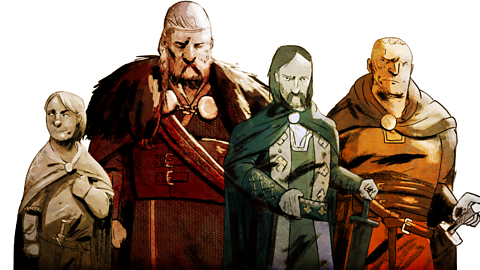
1066: The Battle of Fulford (2/6) video
In the first major battle of 1066, the Viking king of Norway, and Harold Godwinson's own brother Tostig, invade the north of England.
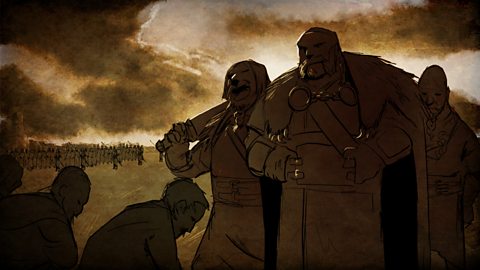
1066: The Battle of Stamford Bridge (3/6) video
The Battle of Stamford Bridge was the second major battle in the fight for the throne in 1066 and two of the four contenders were killed.
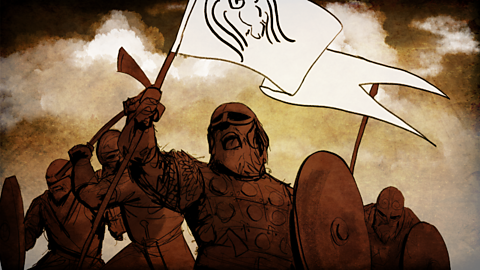
1066: King William and Domesday Book (5/6) video
How William the Conqueror secured control over England.
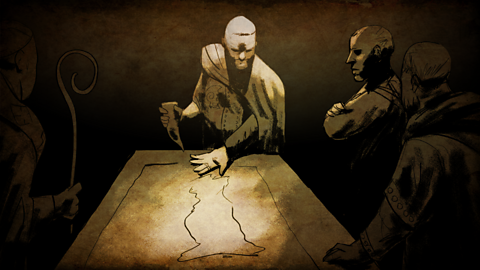
1066: Revolt and resistance (6/6) video
How did the Anglo-Saxons resist Norman rule after 1066?
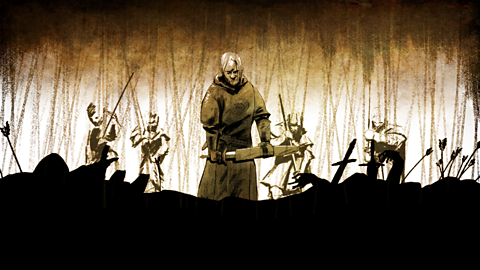
Ěý